- Home
- Wilkie Collins
The Black Robe Page 2
The Black Robe Read online
Page 2
We went on playing. My luck deserted me; I lost, and lost, and lost again. From time to time I looked round at the card table. The "deal" had fallen early to the General, and it seemed to be indefinitely prolonged. A heap of notes and gold (won mainly from Romayne, as I afterward discovered) lay before him. As for my neighbor, the unhappy possessor of the bottles of blacking, the pictures by unknown masters, and the rest of it, he won, and then rashly presumed on his good fortune. Deprived of his last farthing, he retired into a corner of the room, and consoled himself with a cigar. I had just arisen, to follow his example, when a furious uproar burst out at the card table.
I saw Romayne spring up, and snatch the cards out of the General's hand. "You scoundrel!" he shouted, "you are cheating!" The General started to his feet in a fury. "You lie!" he cried. I attempted to interfere, but Romayne had already seen the necessity of controlling himself. "A gentleman doesn't accept an insult from a swindler," he said, coolly. "Accept this, then!" the General answered—and spat on him. In an instant Romayne knocked him down.
The blow was dealt straight between his eyes: he was a gross big–boned man, and he fell heavily. For the time he was stunned. The women ran, screaming, out of the room. The peaceable Commander trembled from head to foot. Two of the men present, who, to give them their due, were no cowards, locked the doors. "You don't go," they said, "till we see whether he recovers or not." Cold water, assisted by the landlady's smelling salts, brought the General to his senses after a while. He whispered something to one of his friends, who immediately turned to me. "The General challenges Mr. Romayne," he said. "As one of his seconds, I demand an appointment for to–morrow morning." I refused to make any appointment unless the doors were first unlocked, and we were left free to depart. "Our carriage is waiting outside," I added. "If it returns to the hotel without us, there will be an inquiry." This latter consideration had its effect. On their side, the doors were opened. On our side, the appointment was made. We left the house.
IV.
IN consenting to receive the General's representative, it is needless to say that I merely desired to avoid provoking another quarrel. If those persons were really impudent enough to call at the hotel, I had arranged to threaten them with the interference of the police, and so to put an end to the matter. Romayne expressed no opinion on the subject, one way or the other. His conduct inspired me with a feeling of uneasiness. The filthy insult of which he had been made the object seemed to be rankling in his mind. He went away thoughtfully to his own room. "Have you nothing to say to me?" I asked. He only answered: "Wait till to–morrow."
The next day the seconds appeared.
I had expected to see two of the men with whom we had dined. To my astonishment, the visitors proved to be officers of the General's regiment. They brought proposals for a hostile meeting the next morning; the choice of weapons being left to Romayne as the challenged man.
It was now quite plain to me that the General's peculiar method of card–playing had, thus far, not been discovered and exposed. He might keep doubtful company, and might (as I afterward heard) be suspected in certain quarters. But that he still had, formally–speaking, a reputation to preserve, was proved by the appearance of the two gentlemen present as his representatives. They declared, with evident sincerity, that Romayne had made a fatal mistake; had provoked the insult offered to him; and had resented it by a brutal and cowardly outrage. As a man and a soldier, the General was doubly bound to insist on a duel. No apology would be accepted, even if an apology were offered.
In this emergency, as I understood it, there was but one course to follow. I refused to receive the challenge.
Being asked for my reasons, I found it necessary to speak within certain limits. Though we knew the General to be a cheat, it was a delicate matter to dispute his right to claim satisfaction, when he had found two officers to carry his message. I produced the seized cards (which Romayne had brought away with him in his pocket), and offered them as a formal proof that my friend had not been mistaken.
The seconds—evidently prepared for this circumstance by their principal—declined to examine the cards. In the first place, they said, not even the discovery of foul play (supposing the discovery to have been really made) could justify Romayne's conduct. In the second place, the General's high character made it impossible, under any circumstances, that he could be responsible. Like ourselves, he had rashly associated with bad company; and he had been the innocent victim of an error or a fraud, committed by some other person present at the table.
Driven to my last resource, I could now only base my refusal to receive the challenge on the ground that we were Englishmen, and that the practice of dueling had been abolished in England. Both the seconds at once declined to accept this statement in justification of my conduct.
"You are now in France," said the elder of the two, "where a duel is the established remedy for an insult, among gentlemen. You are bound to respect the social laws of the country in which you are for the time residing. If you refuse to do so, you lay yourselves open to a public imputation on your courage, of a nature too degrading to be more particularly alluded to. Let us adjourn this interview for three hours on the ground of informality. We ought to confer with two gentlemen, acting on Mr. Romayne's behalf. Be prepared with another second to meet us, and reconsider your decision before we call again."
The Frenchmen had barely taken their departure by one door, when Romayne entered by another.
"I have heard it all," he said, quietly. "Accept the challenge."
I declare solemnly that I left no means untried of opposing my friend's resolution. No man could have felt more strongly convinced than I did, that nothing could justify the course he was taking. My remonstrances were completely thrown away. He was deaf to sense and reason, from the moment when he had heard an imputation on his courage suggested as a possible result of any affair in which he was concerned.
"With your views," he said, "I won't ask you to accompany me to the ground. I can easily find French seconds. And mind this, if you attempt to prevent the meeting, the duel will take place elsewhere—and our friendship is at an end from that moment."
After this, I suppose it is needless to add that I accompanied him to the ground the next morning as one of his seconds.
V.
WE were punctual to the appointed hour—eight o'clock.
The second who acted with me was a French gentleman, a relative of one of the officers who had brought the challenge. At his suggestion, we had chosen the pistol as our weapon. Romayne, like most Englishmen at the present time, knew nothing of the use of the sword. He was almost equally inexperienced with the pistol.
Our opponents were late. They kept us waiting for more than ten minutes. It was not pleasant weather to wait in. The day had dawned damp and drizzling. A thick white fog was slowly rolling in on us from the sea.
When they did appear, the General was not among them. A tall, well–dressed young man saluted Romayne with stern courtesy, and said to a stranger who accompanied him: "Explain the circumstances."
The stranger proved to be a surgeon. He entered at once on the necessary explanation. The General was too ill to appear. He had been attacked that morning by a fit—the consequence of the blow that he had received. Under these circumstances, his eldest son (Maurice) was now on the ground to fight the duel on his father's behalf; attended by the General's seconds, and with the General's full approval.
We instantly refused to allow the duel to take place, Romayne loudly declaring that he had no quarrel with the General's son. Upon this, Maurice broke away from his seconds; drew off one of his gloves; and stepping close up to Romayne, struck him on the face with the glove. "Have you no quarrel with me now?" the young Frenchman asked. "Must I spit on you, as my father did?" His seconds dragged him away, and apologized to us for the outbreak. But the mischief was done. Romayne's fiery temper flashed in his eyes. "Load the pistols," he said. After the insult publicly offered to him, and the outrage public
ly threatened, there was no other course to take.
It had been left to us to produce the pistols. We therefore requested the seconds of our opponent to examine and to load them. While this was being done, the advancing sea–fog so completely enveloped us that the duelists were unable to see each other. We were obliged to wait for the chance of a partial clearing in the atmosphere. Romayne's temper had become calm again. The generosity of his nature spoke in the words which he now addressed to his seconds. "After all," he said, "the young man is a good son—he is bent on redressing what he believes to be his father's wrong. Does his flipping his glove in my face matter to me? I think I shall fire in the air."
"I shall refuse to act as your second if you do," answered the French gentleman who was assisting us. "The General's son is famous for his skill with the pistol. If you didn't see it in his face just now, I did—he means to kill you. Defend your life, sir!" I spoke quite as strongly, to the same purpose, when my turn came. Romayne yielded—he placed himself unreservedly in our hands.
In a quarter of an hour the fog lifted a little. We measured the distance, having previously arranged (at my suggestion) that the two men should both fire at the same moment, at a given signal. Romayne's composure, as they faced each other, was, in a man of his irritable nervous temperament, really wonderful. I placed him sidewise, in a position which in some degree lessened his danger, by lessening the surface exposed to the bullet. My French colleague put the pistol into his hand, and gave him the last word of advice. "Let your arm hang loosely down, with the barrel of the pistol pointing straight to the ground. When you hear the signal, only lift your arm as far as the elbow; keep the elbow pressed against your side—and fire." We could do no more for him. As we drew aside—I own it—my tongue was like a cinder in my mouth, and a horrid inner cold crept through me to the marrow of my bones.
The signal was given, and the two shots were fired at the same time.
My first look was at Romayne. He took off his hat, and handed it to me with a smile. His adversary's bullet had cut a piece out of the brim of his hat, on the right side. He had literally escaped by a hair–breadth.
While I was congratulating him, the fog gathered again more thickly than ever. Looking anxiously toward the ground occupied by our adversaries, we could only see vague, shadowy forms hurriedly crossing and recrossing each other in the mist. Something had happened! My French colleague took my arm and pressed it significantly. "Leave me to inquire," he said. Romayne tried to follow; I held him back—we neither of us exchanged a word.
The fog thickened and thickened, until nothing was to be seen. Once we heard the surgeon's voice, calling impatiently for a light to help him. No light appeared that we could see. Dreary as the fog itself, the silence gathered round us again. On a sudden it was broken, horribly broken, by another voice, strange to both of us, shrieking hysterically through the impenetrable mist. "Where is he?" the voice cried, in the French language. "Assassin! Assassin! where are you?" Was it a woman? or was it a boy? We heard nothing more. The effect upon Romayne was terrible to see. He who had calmly confronted the weapon lifted to kill him, shuddered dumbly like a terror–stricken animal. I put my arm round him, and hurried him away from the place.
We waited at the hotel until our French friend joined us. After a brief interval he appeared, announcing that the surgeon would follow him.
The duel had ended fatally. The chance course of the bullet, urged by Romayne's unpracticed hand, had struck the General's son just above the right nostril—had penetrated to the back of his neck—and had communicated a fatal shock to the spinal marrow. He was a dead man before they could take him back to his father's house.
So far, our fears were confirmed. But there was something else to tell, for which our worst presentiments had not prepared us.
A younger brother of the fallen man (a boy of thirteen years old) had secretly followed the dueling party, on their way from his father's house—had hidden himself—and had seen the dreadful end. The seconds only knew of it when he burst out of his place of concealment, and fell on his knees by his dying brother's side. His were the frightful cries which we had heard from invisible lips. The slayer of his brother was the "assassin" whom he had vainly tried to discover through the fathomless obscurity of the mist.
We both looked at Romayne. He silently looked back at us, like a man turned to stone. I tried to reason with him.
"Your life was at your opponent's mercy," I said. "It was he who was skilled in the use of the pistol; your risk was infinitely greater than his. Are you responsible for an accident? Rouse yourself, Romayne! Think of the time to come, when all this will be forgotten."
"Never," he said, "to the end of my life."
He made that reply in dull, monotonous tones. His eyes looked wearily and vacantly straight before him. I spoke to him again. He remained impenetrably silent; he appeared not to hear, or not to understand me. The surgeon came in, while I was still at a loss what to say or do next. Without waiting to be asked for his opinion, he observed Romayne attentively, and then drew me away into the next room.
"Your friend is suffering from a severe nervous shock," he said. "Can you tell me anything of his habits of life?"
I mentioned the prolonged night studies and the excessive use of tea. The surgeon shook his head.
"If you want my advice," he proceeded, "take him home at once. Don't subject him to further excitement, when the result of the duel is known in the town. If it ends in our appearing in a court of law, it will be a mere formality in this case, and you can surrender when the time comes. Leave me your address in London."
I felt that the wisest thing I could do was to follow his advice. The boat crossed to Folkestone at an early hour that day—we had no time to lose. Romayne offered no objection to our return to England; he seemed perfectly careless what became of him. "Leave me quiet," he said; "and do as you like." I wrote a few lines to Lady Berrick's medical attendant, informing him of the circumstances. A quarter of an hour afterward we were on board the steamboat.
There were very few passengers. After we had left the harbor, my attention was attracted by a young English lady—traveling, apparently, with her mother. As we passed her on the deck she looked at Romayne with compassionate interest so vividly expressed in her beautiful face that I imagined they might be acquainted. With some difficulty, I prevailed sufficiently over the torpor that possessed him to induce him to look at our fellow passenger.
"Do you know that charming person?" I asked.
"No," he replied, with the weariest indifference. "I never saw her before. I'm tired—tired—tired! Don't speak to me; leave me by myself."
I left him. His rare personal attractions—of which, let me add, he never appeared to be conscious—had evidently made their natural appeal to the interest and admiration of the young lady who had met him by chance. The expression of resigned sadness and suffering, now visible in his face, added greatly no doubt to the influence that he had unconsciously exercised over the sympathies of a delicate and sensitive woman. It was no uncommon circumstance in his past experience of the sex—as I myself well knew—to be the object, not of admiration only, but of true and ardent love. He had never reciprocated the passion—had never even appeared to take it seriously. Marriage might, as the phrase is, be the salvation of him. Would he ever marry?
Leaning over the bulwark, idly pursuing this train of thought, I was recalled to present things by a low sweet voice—the voice of the lady of whom I had been thinking.
"Excuse me for disturbing you," she said; "I think your friend wants you."
She spoke with the modesty and self–possession of a highly–bred woman. A little heightening of her color made her, to my eyes, more beautiful than ever. I thanked her, and hastened back to Romayne.
He was standing by the barred skylight which guarded the machinery. I instantly noticed a change in him. His eyes wandering here and there, in search of me, had more than recovered their animation—there was a wild look of terr
or in them. He seized me roughly by the arm and pointed down to the engine–room.
"What do you hear there?" he asked.
"I hear the thump of the engines."
"Nothing else?"
"Nothing. What do you hear?"
He suddenly turned away.
"I'll tell you," he said, "when we get on shore."
SECOND SCENE.—VANGE ABBEY.—THE FOREWARNINGS
VI.
As we approached the harbor at Folkestone, Romayne's agitation appeared to subside. His head drooped; his eyes half closed—he looked like a weary man quietly falling asleep.
On leaving the steamboat, I ventured to ask our charming fellow–passenger if I could be of any service in reserving places in the London train for her mother and herself. She thanked me, and said they were going to visit some friends at Folkestone. In making this reply, she looked at Romayne. "I am afraid he is very ill," she said, in gently lowered tones. Before I could answer, her mother turned to her with an expression of surprise, and directed her attention to the friends whom she had mentioned, waiting to greet her. Her last look, as they took her away, rested tenderly and sorrowfully on Romayne. He never returned it—he was not even aware of it. As I led him to the train he leaned more and more heavily on my arm. Seated in the carriage, he sank at once into profound sleep.
We drove to the hotel at which my friend was accustomed to reside when he was in London. His long sleep on the journey seemed, in some degree, to have relieved him. We dined together in his private room. When the servants had withdrawn, I found that the unhappy result of the duel was still preying on his mind.
"The horror of having killed that man," he said, "is more than I can bear alone. For God's sake, don't leave me!"

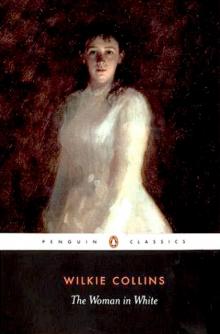 The Woman in White
The Woman in White The Queen of Hearts
The Queen of Hearts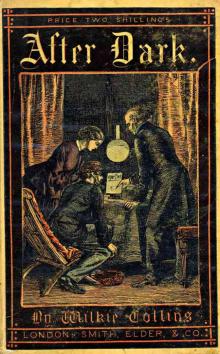 Miss Jeromette and the Clergyman
Miss Jeromette and the Clergyman Man and Wife
Man and Wife The Legacy of Cain
The Legacy of Cain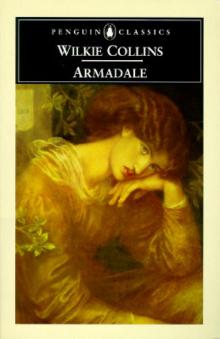 Armadale
Armadale The Frozen Deep
The Frozen Deep John Jago's Ghost or the Dead Alive
John Jago's Ghost or the Dead Alive Poor Miss Finch
Poor Miss Finch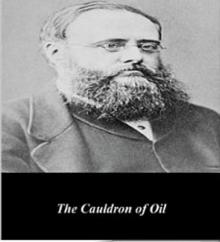 The Cauldron of Oil: A Case Worth Looking At
The Cauldron of Oil: A Case Worth Looking At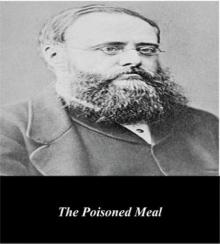 The Poisoned Meal
The Poisoned Meal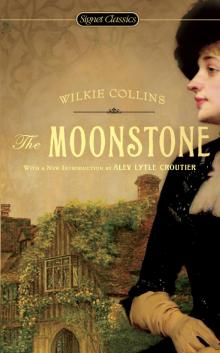 The Moonstone
The Moonstone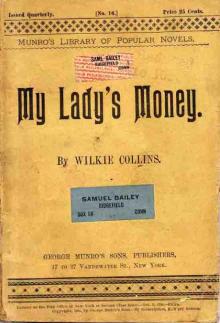 My Lady's Money
My Lady's Money Classic Ghost Stories
Classic Ghost Stories Jezebel's Daughter
Jezebel's Daughter The Devil's Spectacles
The Devil's Spectacles I Say No
I Say No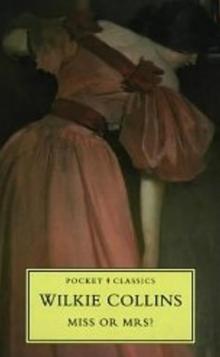 Miss or Mrs.?
Miss or Mrs.?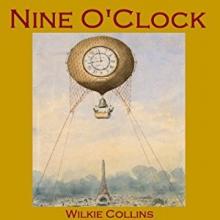 Nine O'Clock
Nine O'Clock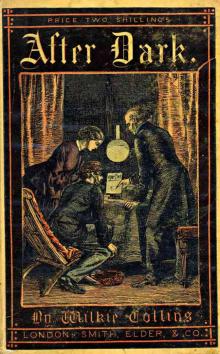 The Lawyer's Story of a Stolen Letter
The Lawyer's Story of a Stolen Letter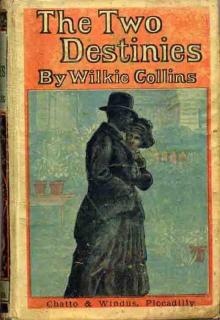 The Two Destinies
The Two Destinies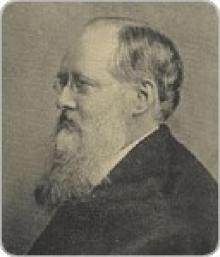 Mr. Percy and the Prophet
Mr. Percy and the Prophet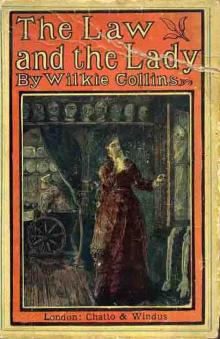 The Law and the Lady
The Law and the Lady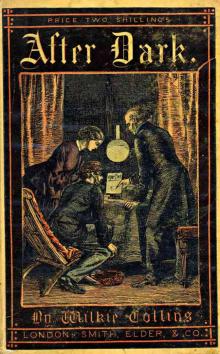 The Nun's Story of Gabriel's Marriage
The Nun's Story of Gabriel's Marriage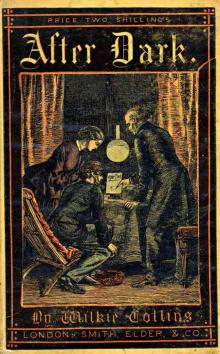 After Dark
After Dark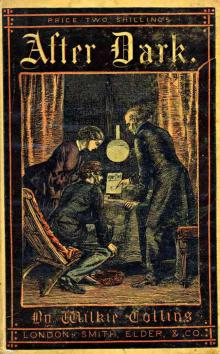 Mr. Captain and the Nymph
Mr. Captain and the Nymph No Name
No Name The Moonstone (Penguin Classics)
The Moonstone (Penguin Classics) Antonina
Antonina Woman in White (Barnes & Noble Classics Series)
Woman in White (Barnes & Noble Classics Series)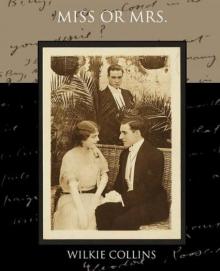 Miss or Mrs
Miss or Mrs The Dead Alive
The Dead Alive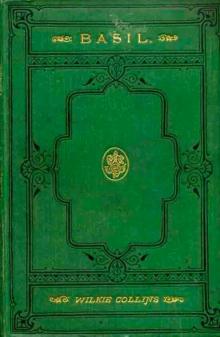 Basil
Basil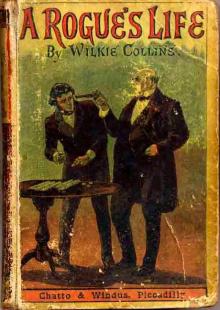 A Rogue's Life
A Rogue's Life The New Magdalen
The New Magdalen Blind Love
Blind Love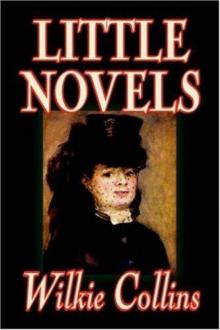 Little Novels
Little Novels The Lazy Tour of Two Idle Apprentices
The Lazy Tour of Two Idle Apprentices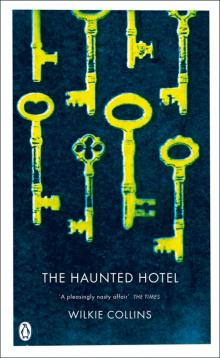 The Haunted Hotel
The Haunted Hotel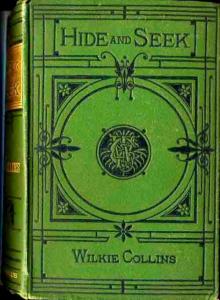 Hide and Seek
Hide and Seek